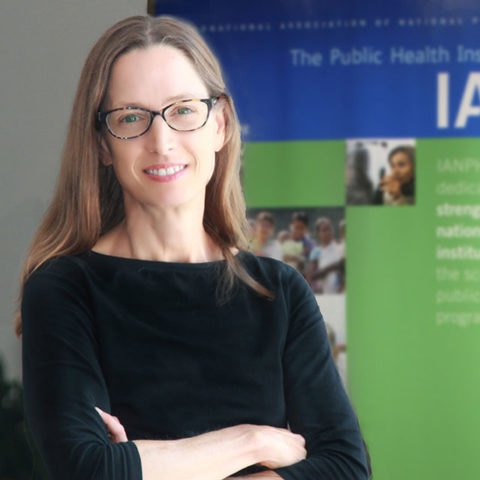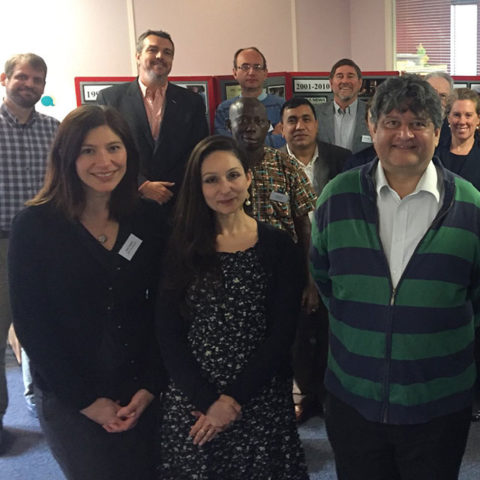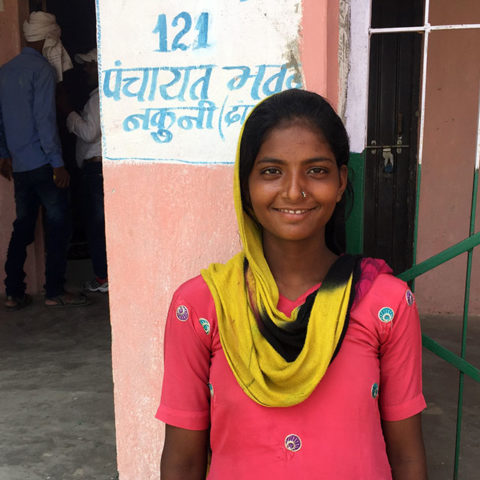
Talking Leprosy: Interview with Courtenay Dusenbury
“ILEP will play a crucial role in the success of the global partnership”
This month, ILEP’s Rosa Argent caught up with Courtenay Dusenbury, the Secretariat Director of the Global Partnership for Zero Leprosy, in Colchester to find out what attracted her to the role and how important she believes the role of ILEP members will be in achieving zero leprosy.
Courtenay Dusenbury has a talent for bringing people together from disparate groups towards a common goal. Prior to joining the Global Partnership for Zero Leprosy in January, she was the founding director of the International Association of National Public Health Institutes U.S. office, working with ministries of health and public health leaders in countries to transform national public health capacity globally.
She was inspired to join the leprosy community at this critical juncture – just weeks before the global partnership was publicly announced – because “I was very interested in the idea of helping to create a new partnership of people – with a shared and bold vision and aspirational goals – to tackle a 2000+ year old problem.”
Describing one of her traits as perseverance, Ms Dusenbury – who is perhaps fittingly a marathon runner – highlights the importance of relationship building and long-term commitment required for the partnership to achieve success. She says: “It’s a tremendous honor and learning opportunity to be able to work with the top scientific experts and policymakers on our leadership team as well as the leaders and teams of the ILEP membership. The amount of goodwill and willingness to work together for the benefit of humankind they share is very exciting.
“Such opportunities are rare and I have the sense that everyone understands the importance and gravity of the chance we have been given to work together in 2018 – what it means for 2028, and 2038 … and beyond. We feel very strongly that we want to get this right, that we recognize there are political, scientific, and programmatic complexities, and that it will be necessary to persevere and to be committed for the long term.”
Despite many complexities, however, she believes that the success of other private-public partnerships in the neglected tropical disease sector demonstrate the huge potential for achieving zero leprosy. “With a common vision and a framework, and objectives for achieving that vision, we can do what other groups in the NTD community have done: share and apply best practices, technical expertise and lessons learned across countries and communities. The Global Partnership’s Program Implementation working group (coordinated by ILEP) in particular will help to develop and apply the strategies for programmatic excellence needed to get to zero.”
The importance of partners sharing a common vision, and setting and agreeing clear objectives and milestones, is critical. Ms Dusenbury believes that “It’s a key role of the partnership to ensure that all those impacted and interested are at the table from the start, that their input is sought and acted upon, that consensus is used to come to decisions on how we proceed. In other words, true partnership.”
The role of ILEP’s secretariat and its members, she argues, play a unique and important leadership role in the partnership. “Their experience in research and program implementation, the close relationships they have with partners working in country, their funding of best practices and their dedication to improving the lives of our fellow human beings make them absolutely essential to this work. Their technical and policy expertise is priceless; no global effort can function without it. Having guidance and advice from ILEP, and full participation in work groups and policy development, will be crucial to the success of the global partnership.”

